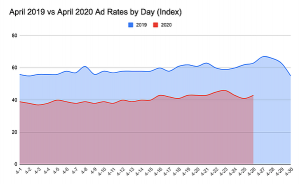Stop me if you’ve heard this story before: You start your job as a new customer service agent at your company. You go through training, get coached to use the company software, and learn to de-escalate situations with angry customers. You learn the products, services, and you know how to answer nearly every question a customer throws at you. You’re praised for your low Average Handle Time, high First Call Resolution, and outstanding CSAT Scores.
You’re a top performer. And after a year of dedication, you’re promoted to manager of your call center. But this time… you take on a new role without any training.
Sound familiar? Maybe this is your story or it matches that of a fellow manager. The reality is, call center managers get a team full of people dumped into their lap without learning what really goes into managing a call center team. The expectation that a good agent can be a good manager is false, to say the least… No one just magically becomes a good manager.
And, managing a team full of people who look to you for guidance and support (all while keeping performance high) is really tough work. So, how do you manage a call center team? And, more importantly, how do you build a team of successful customer service agents?
The Value of Good Customer Service
High-quality customer service is the holy grail of a successful business. A study out of Harris Interactive found that nearly 90% of consumers stop doing business with you if they get bad customer service. Give customers a good experience and they’ll keep coming back (and maybe even recommend your business to their friends and family).
Research shows that 41% of today’s consumers will pay more for knowledgeable and helpful employees. Superior customer service also improves customer loyalty, average purchase value, and overall brand sentiment.
So, what’s holding you back?
It’s time to build a team full of customer service superheroes. Easier said than done. Especially if you’re just trying to stay afloat as a call center manager as it is.
Let’s start with the essentials — what’s the anatomy of a stellar customer service agent?
The Anatomy of a Stellar Team
Generally, most customers today are just whelmed by customer service. American Express found that 29% of consumers said customer service reps missed their expectations, 62% met expectations, and only 5% exceeded expectations.
How do you make sure your agents are within that 5%?
There are many skills you should consider when you hire new agents and coach them to success. But, let’s consider the top skills an agent needs to go above and beyond:
1. Clear Communication Skills
This may seem obvious. Of course your customer service reps need to communicate well. But, think of the power that using the right language has on a situation. You rely on your agents to provide explanations, de-escalate situations, and problem solve within the limitations of language.
Your customers expect your agents to excel in communicating. In fact, 33% of customers say efficiently answering questions is the most important skill a customer service agent can have. Unfortunately, eloquence and articulation is harder to come by than you’d imagine.
Mumbling, losing focus, or using unclear language is the source of many dissatisfied customer experiences. Think about how many times you’ve said the wrong thing or had a stark tone that scared off customers. The words and sentiment you choose can easily get you into trouble and cause a communication break down
What does it matter if your agents are empathetic or positive people if they can’t communicate that positivity well to your customers? To successfully manage your customer service team, hire good communicators and commit to training your agents on growing as communicators.
2. Patience
As a call center agent, there are days you’re subjected to be a mere punching bag. When I myself was a customer service rep, sometimes I felt like I couldn’t catch a break.
I took one call after another being shouted at or blamed for a problem that was entirely outside of my control. Receiving those emails written in all caps. Your agents never know what kind of interaction they’re going to get when they pick up the phone or start a live chat.
According to a study by the University of Toronto, impatience makes doing hard things even harder. Think of how hard it is to de-escalate a situation with an angry customer when your own patience is dwindling. When your customers are frustrated, it only takes a shift in your tone of voice or a response that’s a bit too abrupt to turn your customer off from continuing with your brand.
Your agents need to prove they can practice patience in moments of stress. It takes an even-keeled person to take on the anxiety of customer service work.
3. Time Management and Efficiency
Time is money in a call center. Many of your traditional KPIs depend on how efficiently and quickly your agents help customers. Why? Because consumers today expect speed and efficiency. We want our food brought out to us as soon as possible. We want to call a service line and avoid waiting on hold. Yes, we even want our deliveries to arrive within a day of ordering online. Read: we want our problems solved as promptly as possible.
Some 83% of online shoppers will abandon their purchase or take their business elsewhere if they aren’t helped within five minutes. If your agents struggle to work efficiently and customers get put on the back-burner, even for a few minutes, your company may lose their loyalty.
Salesforce found that immediacy is vital to today’s customers. In the findings, 64% of consumers and 80% of business buyers said they expect companies to respond to and interact with them in real-time. And, as the millennial generation becomes more powerful in the marketplace, the issue only becomes more pressing. Today, 66% of millennial consumers expect real-time responses and interactions, versus just 62% of baby boomers.
Cut back hold time, streamline your processes, have a team of agents with excellent time management skills, and you will better care for more customers.
Get your Agents to Super Hero Status: Coaching Agents to Strengthen Skills
Your role as a call center manager starts with hiring and continues as your foster and coach a team to greater success. You have a laundry list of skills you want your agents to excel in.
Now what? Consider some of these action items:
Improve transparency and communication
Set your standard of communication before you even hire your agents. When hiring, pay close attention to how your prospective agents write their emails and cover letter. Maybe add a step to your interview process to see how a candidate would respond to certain situations using both written and spoken word.
Once on your team, offer your agents essential email macros and messaging templates to get them on their feet. Giving some models for how you want your agents to communicate with customers for stylistic and service consistency.
Consider working with your marketing team to create a branding guide. This sets a standard for the kind of voice and character any interaction with your customer should have. For example, in Mailchimp’s Content Style Guide, they say all employees should use plainspoken language, and be authentic when writing, with a humorous and informal tone.
Coach your agents to become clearer in their communications by setting a cadence for 1:1s to go through a few of their interactions. Capture call recordings and leave comments on transcripts from their live chats and emails to do a deep dive on their writing and speaking skills. For example, evaluate where they did an excellent job explaining a set of instructions to a customer, or where they maybe should have used a few different words in an email to soften their tone. Then, leave feedback in-line on their interaction, so they have context to better understand it.
Don’t Share Every Single Metric With your Employees
Metrics are essential to successfully managing a call center team. But, not all of them produce fruitful results from your agents. Consider Average Hold Time as a metric. This metric, if it’s high, could signal that you’re understaffed or maybe that your agents are inefficient. But, it could also indicate that your agents are taking the time needed to solve an issue in a single interaction, making your First Contact Resolution metric also high.
Sometimes overcommunicating your metrics with your team leads to stress and subtracts from the bigger picture of their work – the positive outcome they’re trying to help their customer reach. If your goal is to retain your star agents, be selective with which metrics to use and share.
Give your agents insight into how their interactions lead to your customers’ happiness and loyalty and build your own employees’ levels of engagement and motivation.
Select which metrics are worth broadcasting to all your agents carefully. If a metric doesn’t speak to the quality of your customer’s experience, it might not be worthwhile to communicate. You don’t want metrics detracting from agent experience, but building them up.
Create a Culture of Feedback and Vulnerability
What are some indicators of stress in your call center? Agents are irritable, coming in late or not at all, their patience with customers is waning thin and they’re complaining more and more…
Managing a call center team with a healthy culture is critical for success. Even the best agent will eventually get tired of their job if morale is consistently low. And, as I mentioned earlier, when your agents are unhappy or restless, your customers will notice and some may give up on your brand as a result. To combat this from happening on your team, create a culture that welcomes feedback and openness.
This starts with you — their fearless leader. Be transparent about your areas of weakness and invite your agents to provide feedback regularly. No one likes a person who dishes out criticisms and can’t take it themselves. Use surveys, 1:1s, and team meetings as spaces for your agents to ask you questions, to provide feedback, and as safe places for agents to ask for help.
At Eventbrite, Dana Kilian, their VP of Customer Experience, holds a Q&A session every other week with her team in which she asks them to throw her tough questions. And, every day, customer service team members get a summary about customer service levels. The team sends a full report, including customer feedback and comments, to the entire company each week, too. This practice makes transparency routine.
Think of how much easier growth and learning becomes when, as a team, you’re allowed to openly praise good work, and learn from mistakes.
Gathering the Tools for Success
Hiring and retaining the best contact center agents is critical to managing a call center team that wins for your customers. As a call center manager, effective hiring and retention starts with you!
With some tools to start you off, you can create a team of high-performing agents who enjoy their work, increase customer satisfaction, and contribute to the company’s larger goals.
Contact center leaders who focus on recruiting, professional development, and retaining their all-star agents guarantee customer service success—season after season.
When you provide agents with a better experience, your customer experience and business thrive.
Business & Finance Articles on Business 2 Community
(39)
Report Post





